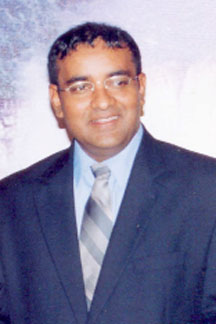President Bharrat Jagdeo, on Friday evening said sports in Guyana was underfunded, was a victim of other elements of the society and called for a virtual overhaul of the system in the country in an effort to achieve greater success.
Jagdeo was at the time delivering the feature address at the National Sports Commission 2010 National Sports Awards ceremony, at the National Cultural Centre.
He urged sports associations to work together on a course of action aimed at resolving the issues that were negatively affecting sport in Guyana.
Addressing the gathering of sports officials, awardees and others designated under various sports association, Jagdeo called on the national associations (NA) to put plans in place for the development of their respective disciplines.
“We need to fix the associations. There are so many associations and so many sporting bodies; half of them don’t have development plans and half are not accountable,” said the Head of State.
Jagdeo said that his remarks were not meant only to “shower praise” on the awardees, but also “to call a spade a spade.
“If we want sport to succeed and many more people to be as successful as these young people [awardees] here, then we have to tackle the whole system that makes sport successful in the country,” President Jagdeo declared.
He said that the government will continue allocating more money towards sport and making more opportunities available but said he would also like to see greater involvement from the necessary persons since sport is sometimes a “victim to other elements of the system.
“We need to work at it together,” said Jagdeo, while making reference to the ongoing troubles of the Guyana Cricket Board (GCB).
“They [GCB] live in the court. How can you really develop cricket in Guyana when even the people at the top are unsettled and don’t have direction?” he questioned.
The president added that he was hoping to see a change and a resolution without government intervention since it is “not a task of government,” to get too involved “in running peoples affairs,” rather, only to be supportive.
“I hope that we can all work at it together, to change the way we look at sport and supporting more amateur sport.”

He declared that he would like to see greater involvement from the corporate community in relation to supporting athletes who are often in need of financial support.
“They [athletes] don’t have enough money to support their families much less a career of training. We need to fix that too, but the state will not be able to fix everything. Our business community has to start seeing this as a good investment. We are prepared to bring two Jamaican singers here but we are unprepared to spend a million dollars to support a sports person.
“We can’t develop sport and realize the full potential of this wonderful group of people [awardees] who are here if we don’t have the vision to do this and if we don’t have the support of everyone involved including the private sector.”
Jagdeo acknowledged that both amateur and professional sport were underfunded in Guyana pointing out that those areas do not generate enough income and the country needs collectively to work on reversing this.
On a developmental note, he cited the sports facilities that his government had embarked upon constructing and asked that the sportsmen and women who are set to benefit from the facilities, be a bit patient as they work towards completing those facilities.
“We are yet a far way from where we want to be and I ask you to see this as a road that will eventually end up where we want it to be,” said Jagdeo while adding that the government has travelled a “difficult path” to get to the point they are at the moment.
Jagdeo declared that as the country’s income has improved, correspondingly, the allocation and development of sports facilities has also improved from times past and this will continue as the country develops economically.
He congratulated the awardees and in an appreciative tone noted: “This award is just a token of our gratitude for your service to our country, but it can never really compensate for the long hours of hard work that lies behind your success.”
He said that the “state is just one part of the network that makes sport a success,” and encouraged those sports officials in the gathering to lend support as they strive to move forward.








